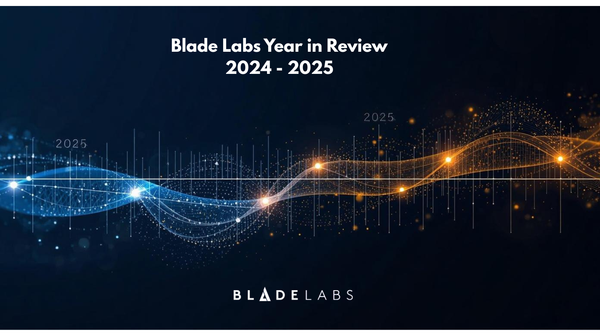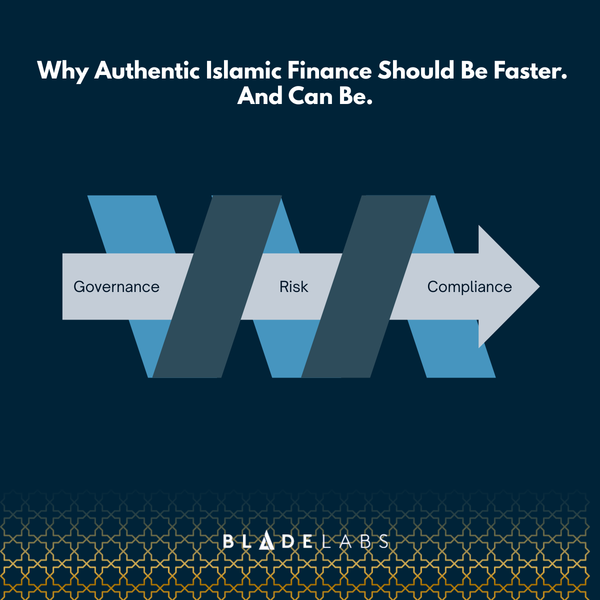Driving Ethical Innovation: How Diminishing Musharakah and Technology Are Revolutionizing Islamic Auto Finance
How ZeroH solves implementation challenges in Islamic auto financing through Diminishing Musharakah. Technology innovations including smart contracts, blockchain-based ownership tracking, and automated compliance verification transform a complex ethical financing structure into a scalable solution.

In the evolving landscape of financial products, Diminishing Musharakah offers a unique approach by blending ethical principles with commercial viability. This Islamic financing method enables gradual asset acquisition through shared ownership rather than traditional debt. As consumer demands shift toward responsible finance, Diminishing Musharakah emerges as a viable alternative to conventional auto loans. By exploring its benefits and challenges, especially with innovations from ZeroH, this article delves into how technology is transforming Islamic finance in the auto sector.
Exploring Diminishing Musharakah
Diminishing Musharakah is more than an ethical choice; it offers tangible commercial benefits. For consumers, it ensures transparency by outlining clear costs from the beginning and prevents hidden charges, unlike conventional loans. Flexibility in early settlement allows consumers to save without prepayment penalties, and aligned incentives mean both parties are invested in maintaining the asset's value. Financial institutions gain stronger asset security and lower default risks due to the shared ownership model, fostering consumer retention and unlocking market differentiation by appealing to ethically-conscious demographics.
By employing a co-ownership model, Diminishing Musharakah transforms transactional dynamics. Consumers find the predictability in known costs comforting as they navigate an often opaque financial landscape. Unlike traditional loans burdened with compounding interest and hidden fees, Musharakah provides clarity from the outset. Furthermore, with early settlement options devoid of penalties, borrowers can seize financial opportunities to enhance equity ownership, exemplifying a consumer-friendly approach that prioritizes flexibility and individual financial independence.
From the perspective of financial institutions, the advantages are equally compelling. Maintaining asset security through shared ownership mitigates risks, fostering a more stable financing environment. It is particularly advantageous in volatile markets, where such stability ensures prudent asset management and continued consumer engagement. Likewise, the decreased likelihood of default — propelled by the consumer’s vested interest — translates to more reliable revenue streams.
Finally, offering Diminishing Musharakah positions financial entities as pioneers in providing ethically sound, innovative solutions. This market differentiation appeals particularly to the increasingly influential segment of ethically-conscious consumers who seek financial instruments that align with their values. Thus, Diminishing Musharakah fulfills spiritual and ethical mandates while also propelling commercial success, illustrating the harmony between ethical finance and modern financial performance.
Diminishing Musharakah’s Commercial Benefits
Diminishing Musharakah is more than an ethical choice; it offers tangible commercial benefits. For consumers, it ensures transparency by outlining clear costs from the beginning and prevents hidden charges, unlike conventional loans. Flexibility in early settlement allows consumers to save without prepayment penalties, and aligned incentives mean both parties are invested in maintaining the asset's value. Financial institutions gain stronger asset security and lower default risks due to the shared ownership model, fostering consumer retention and unlocking market differentiation by appealing to ethically-conscious demographics.
By employing a co-ownership model, Diminishing Musharakah transforms transactional dynamics. Consumers find the predictability in known costs comforting as they navigate an often opaque financial landscape. Unlike traditional loans burdened with compounding interest and hidden fees, Musharakah provides clarity from the outset. Furthermore, with early settlement options devoid of penalties, borrowers can seize financial opportunities to enhance equity ownership, exemplifying a consumer-friendly approach that prioritizes flexibility and individual financial independence.
From the perspective of financial institutions, the advantages are equally compelling. Maintaining asset security through shared ownership mitigates risks, fostering a more stable financing environment. It is particularly advantageous in volatile markets, where such stability ensures prudent asset management and continued consumer engagement. Likewise, the decreased likelihood of default — propelled by the consumer’s vested interest — translates to more reliable revenue streams.
Finally, offering Diminishing Musharakah positions financial entities as pioneers in providing ethically sound, innovative solutions. This market differentiation appeals particularly to the increasingly influential segment of ethically-conscious consumers who seek financial instruments that align with their values. Thus, Diminishing Musharakah fulfills spiritual and ethical mandates while also propelling commercial success, illustrating the harmony between ethical finance and modern financial performance.
Addressing Traditional Challenges
Despite its ethical appeal, implementing Diminishing Musharakah faces several hurdles. The complexity in documentation due to separate partnership, lease, and purchase contracts poses a significant challenge. Furthermore, systems often resist co-ownership models, complicating vehicle registration in numerous jurisdictions. Compliance with Shariah principles across different markets demands extensive oversight and adaptation due to varied interpretations. Explore these implementation hurdles, their impact on scalability, and why some financial institutions may hesitate to adopt this structure, impacting the broader embrace of Diminishing Musharakah despite its potential benefits.
Despite its conceptual elegance, implementing Diminishing Musharakah in auto financing has traditionally faced practical challenges. The need for multiple coordinated contracts escalates operational complexities and requires specialized legal resources, elevating costs compared to conventional loans. Documentation complexity can deter institutions, reinforcing reliance on streamlined, single-agreement loans. Additionally, vehicle registration systems designed for single ownership resist adapting to co-ownership scenarios, heightening administrative hurdles and potential for procedural delays.
Furthermore, ensuring compliance across diverse markets where interpretations of Shariah principles vary significantly necessitates extensive oversight. This inconsistency imposes an onerous burden on financial institutions trying to consistently uphold religious and ethical standards across regions. The potential need for region-specific adaptations or legal restructuring further discourages widespread adoption, as financial institutions weigh these complexities against current operational frameworks.
Despite these barriers, forward-thinking solutions are emerging. Technological innovations like smart contract automation and blockchain-based tracking are simplifying processes, promising to lower barriers by enhancing compliance, transparency, and efficiency. Although these technologies offer hope, they require significant upfront investment and a willingness to innovate, which may not yet align with every institution's strategic vision, thus stalling the mass adoption of Diminishing Musharakah despite its inherent advantages.
ZeroH’s Tech-Driven Solutions
The award-winning ZeroH platform, created by Blade Labs, is revolutionizing Islamic auto finance through technological integration that addresses traditional challenges. By automating documentation via smart contracts, ZeroH speeds up processing from days to minutes, requiring no specialized expertise. Blockchain technology offers innovative tracking of ownership shares, ensuring clarity without altering current registration systems. Real-time compliance verification integrates regulatory and Shariah principles, significantly reducing costs. This detailed scrutiny into ZeroH's use of technology illustrates how they enable financial institutions to streamline operations, reduce risks, and tap into new markets, broadening the reach of Diminishing Musharakah at scale.
The smart contract automation employed by ZeroH fundamentally alters the landscape of Islamic auto financing. By digitally orchestrating the complexities of multiple contractual obligations, ZeroH removes one of the most significant barriers to Diminishing Musharakah's broader adoption — documentary inefficiency. This automation minimizes human error, enhances consistency, and significantly decreases the time required to close deals, which is paramount for scalability in a competitive market.
Moreover, ZeroH's blockchain-based ownership tracking offers a breakthrough in transparency and security. By utilizing Hedera Hashgraph technology, information about ownership is made both immutable and readily accessible, bypassing traditional hurdles posed by conventional vehicle registration systems. This ensures financial institutions need not fundamentally disrupt existing administrative infrastructures to incorporate more transparent, ethically-compliant ownership models.
Importantly, ZeroH's real-time compliance verification system ensures that all aspects of the transaction uphold both regulatory and Islamic law. By embedding compliance directly into the operational framework, ZeroH not only reduces associated costs but enhances trust among all stakeholders. This approach enables institutions to confidently expand into new markets where Diminishing Musharakah's ethical advantages meet unreconciled demand, truly broadening its commercial horizon and enhancing competitiveness through ethical innovation.
Conclusions
Diminishing Musharakah signifies a paradigm shift in auto financing, moving away from debt-focused relationships to co-ownership and partnership. By integrating technological innovations like blockchain, ZeroH has redefined the application of this method, overcoming traditional barriers. Financial institutions benefit through risk reduction, operational efficiency, and ethical market appeal. As we look forward, the path with ZeroH offers promising growth in serving both consumer and commercial markets, ensuring compliance and delivering authentic value. Through ethical design and cutting-edge technology, the future of Islamic auto finance is bright and impactful.


